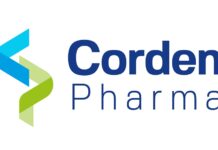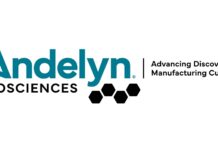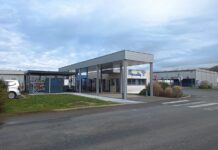Banook Central Imaging (Banook CI), a global imaging core lab for drug and device clinical trials, announces today that it has been selected by Servier to assess the potential anti-tumor activity of a novel monoclonal antibody based on the RECIST 1.1 (Response Evaluation Criteria in Solid Tumors) and Immune-Related Response criteria (IrRC).
Following on from the successful research conducted by Gomez-Roca et al[1] at Gustave Roussy Cancer Center, this multicenter, international phase I study in patients with breast cancer will also incorporate the use of Tumor Growth Rates (TGR). TGR assessment will allow Servier to explore the growth rate before and after treatment. This will allow for a more detailed look at the effectiveness of the drug in development than that provided by RECIST 1.1 alone.
“In this new era of personalized medicine, it may be essential to redefine the response to treatment and identify those patients in whom the treatment has a beneficial impact on tumor growth,” said Professor Jean-Charles Soria, head of the early drug development program at the Institut Gustave Roussy (IGR), in Villejuif (France). “We are convinced that the collaboration between Servier, IGR and Banook CI creates a unique opportunity to bring forward a new generation of efficacy assessment criteria in drug development.”
Throughout this trial Banook CI will leverage their comprehensive imaging core lab services, including a specialized radiologic review and analysis of all images. Employing state-of-the art software, Banook CI supports and automates all the necessary tasks for the rigorous follow-up of the radiologic exams. This allows readers to focus on accurate image interpretation and response analysis. Combining this sophisticated and robust imaging software with experienced imaging professionals allows Banook CI to incorporate innovative analyses such as TGR with RECIST and IrRC.
“We are delighted to start this new collaboration with Servier,” said Dr. Pascal Voiriot, founder and chief executive officer at Banook CI. “Our customers increasingly attempt to include new methodologies such as TGR or IrRC in their clinical programs. We are always looking for innovative solutions aimed at better and earlier evaluation of the response of patients to the new therapeutic approaches for cancer. Banook CI is setting the bar for the industry.”
About Banook Central Imaging (http://www.banook-ci.com)
Banook CI is a global service organization providing medical image management for clinical research to academic centers as well as pharmaceutical, biotechnology and medical device industries. It helps its clients secure prompt marketing approval by providing objective, reliable and rigorous image acquisition, analysis and processing services that exceed both scientific standards of excellence and regulatory requirements. Banook CI has been implementing state-of-the-art technologies to handle large volumes of data in full compliance with a comprehensive set of operating procedures and all applicable regulatory guidelines. As well as medical experts these services are supported by a multidisciplinary team including technicians, IT professionals, data managers and specialists in logistics, quality assurance and regulatory affairs. All staff members work collaboratively to develop innovative solutions and deliver data of the highest quality and integrity within agreed timelines.
About Servier Group (http://www.servier.com)
Servier Group is a privately-held research-led pharmaceutical group, with more than 20,000 employees around the world, including 3,000 in R&D. Its products are available in more than 140 countries. Organized as a foundation and deeply committed to research, it reinvests a large portion of its turnover in the research and development of innovative medications.
About Gustave Roussy (http://www.gustaveroussy.fr)
Gustave Roussy, a leading European Comprehensive Cancer Centre, is a wholly patient-oriented centre with global expertise and the mission to fight cancer. It employs in one centre 2,600 professionals working in care, research and teaching. With 20 per cent of its budget dedicated to research, the institute clearly demonstrates its wish to promote research as an innovation driver to benefit patients. As part of the French public hospital service, it is authorized to receive donations and legacies.
Gustave Roussy in figures: In 2012 it had 356 beds and 88 places for day-cases; 47,000 patients with 12,000 new patients per year; 1 patient out of 4 takes part in a clinical trial (2,813 in 2012); 524 patients in phases I/II early trials in 2012; 31 early trials for specific organ cancers in 2011 and 450 patients underwent molecular tumor analysis; 300 clinical studies in progress.




















